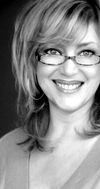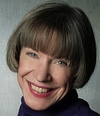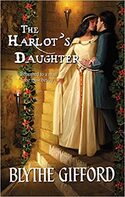Jennifer Colt | The Con Artist of Catalina Island
 Good morning. I am so pleased to be here blogging to you. You will notice that I use no contractions in this blog. This is because, while reading the posts below, I happened to notice that everywhere there should be an apostrophe, there is instead a question mark. I have no desire for my blog to? appear? thus??? It is very distracting and even crazy-making for someone who is a born editor.
Good morning. I am so pleased to be here blogging to you. You will notice that I use no contractions in this blog. This is because, while reading the posts below, I happened to notice that everywhere there should be an apostrophe, there is instead a question mark. I have no desire for my blog to? appear? thus??? It is very distracting and even crazy-making for someone who is a born editor.Guess I should say why I am here. To promote my new book!
 It is called The Con Artist of Catalina Island: A McAfee Twins Christmas Novel, the fourth book in the McAfee Twins novels. The McAfee girls are Terry and Kerry; identical in looks, opposite in personality. Terry is a lesbian biker with a prison record; Kerry is a good-girl type who considers herself to be the keeper of Terry. They drive each other crazy but can’t conceive of being apart. Kerry says that when Terry was in prison it was like living on borrowed air.
It is called The Con Artist of Catalina Island: A McAfee Twins Christmas Novel, the fourth book in the McAfee Twins novels. The McAfee girls are Terry and Kerry; identical in looks, opposite in personality. Terry is a lesbian biker with a prison record; Kerry is a good-girl type who considers herself to be the keeper of Terry. They drive each other crazy but can’t conceive of being apart. Kerry says that when Terry was in prison it was like living on borrowed air.The girls are the proprietors of Double Indemnity Investigations, a two-woman PI firm. Normally they zip around Los Angeles solving crimes from the back of their hot pink Harley Softail Deuce, but in this book, they are tearing up an island paradise on a golf cart.
They have accompanied their rich aunt Reba and her recovering lush of a son, Cousin Robert, on a Christmas trip to quaint and lovely Santa Catalina off the California coast. No sooner do they arrive than the whole island erupts in chaos: bison stampede, a French poodle jams up traffic, a honeymooning bride mysteriously disappears and her giant diamond ring shows up in a hotel toilet. (It is fairly typical of one of my plots--very low-key.)
There is a hot sketch artist named David Solomon who has eyes for Kerry, and who may just be an arch criminal in spite of the fact that he’s a dead ringer for Jesus. (Kerry can be forgiven for falling for a "pretty face" because, as she tells the reader, this particular face is usually portrayed wearing a halo.)
That should give you a feel for the type of book I write. Now as to the why:
Why write comedy? Why spend hours and years going for a few laughs from the reading public? Laughs that I cannot even hear but can only learn about second- hand in that blessed of all communications, the fan letter?
I do it because I think we need a lot more laughter, a lot more light in this world. I think comedy and satire can speak to power in ways that are usually prohibited. I believe we are coming out of a very dark period in our history, and some of the people who have lit the way for us are brilliant comedians like Jon Stewart and Stephen Colbert.
Comedy pokes holes in overblown egos. It refuses to be silenced on the issues that make us stupid: bigotry, greed, ambition, selfishness. It holds them all up to the light and shows them for what they are. In its ability to humble, nothing can top it. (Plus, I just get a kick out of writing about toothless poodles.)
Sorry to pontificate, but I just received an email asking for my blog and thus have no time to censor myself. Hope you will have a great holiday season, and here is to 2008!
Cheers,
Jennifer
http://www.jennifercoltbooks.com/
Labels: contemporary, Jennifer Colt, Romance









